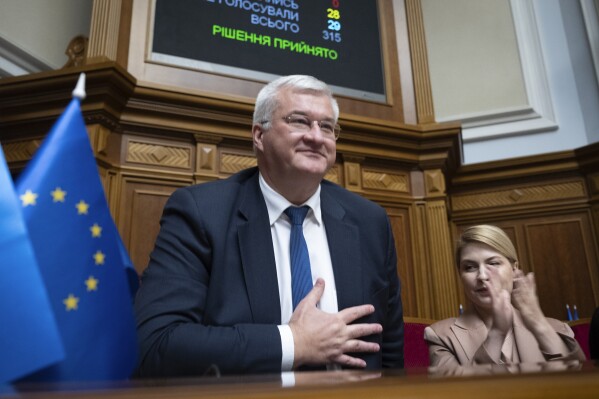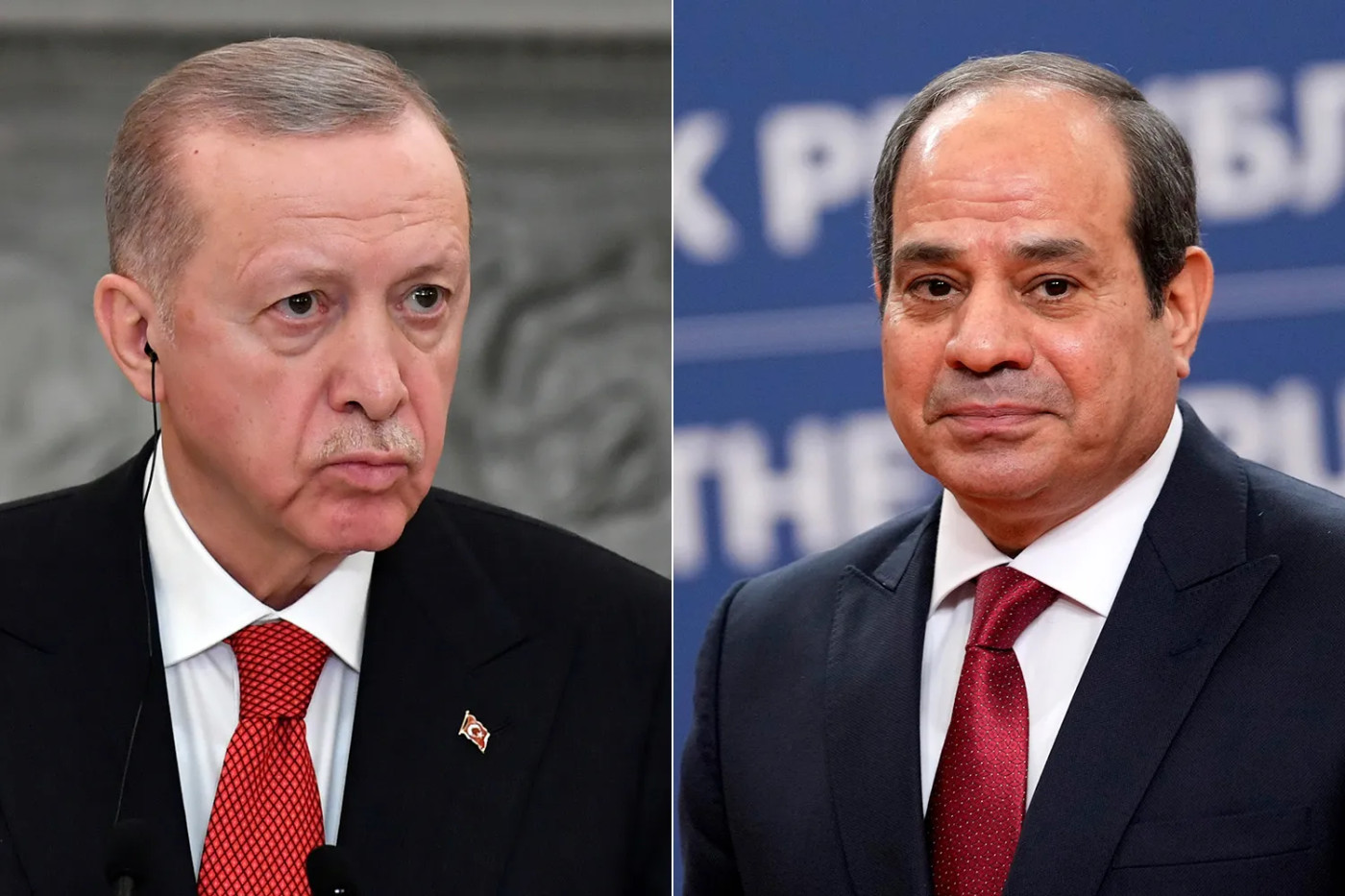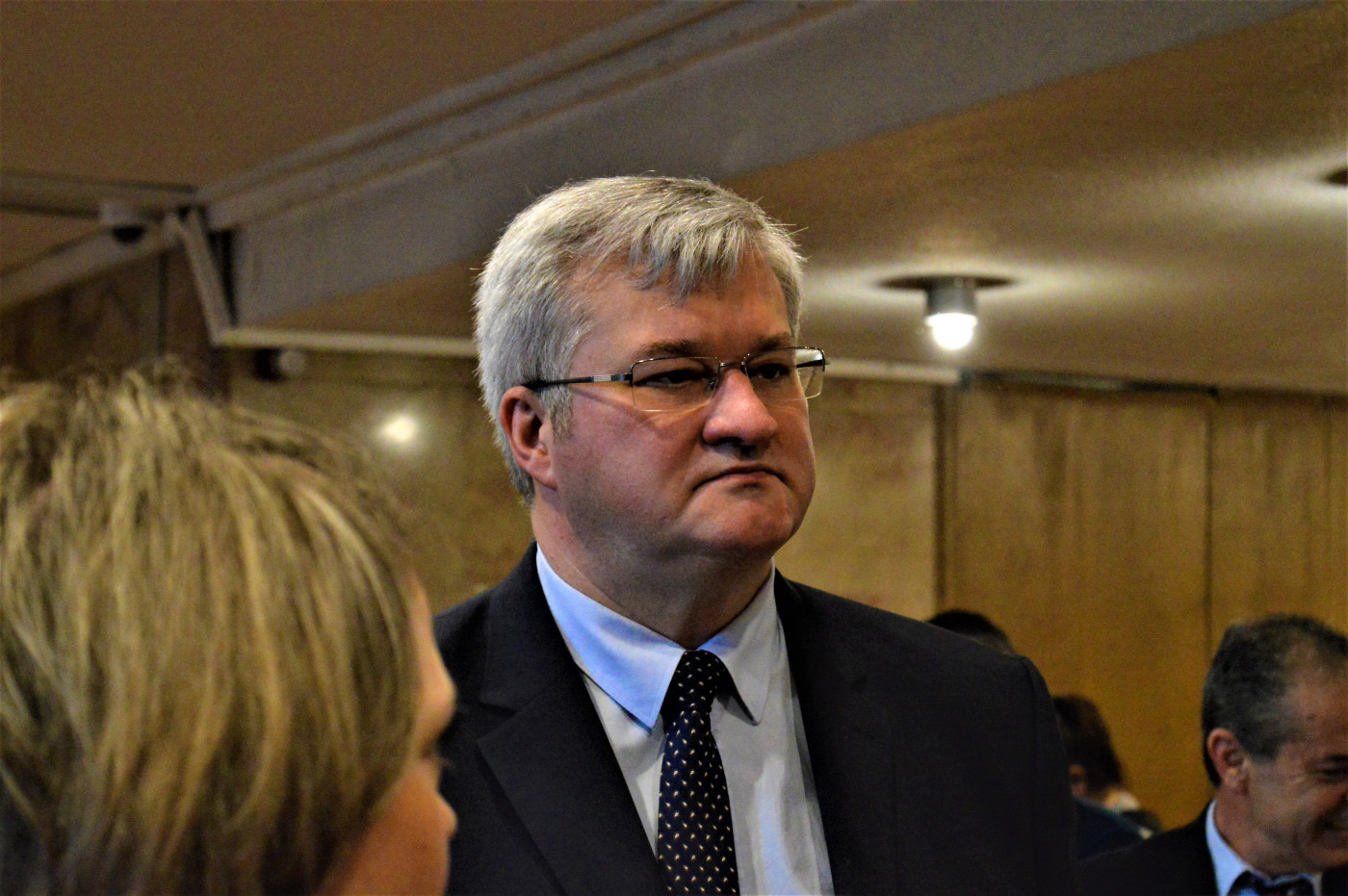Ukraine's Kursk Offensive Could Make Peace Harder To Achieve | Opinion
On August 6, Ukraine launched a surprise offensive into Russia's Kursk region, mobilizing at least 10,000 troops. Ukraine has used the momentum of its military's rapid advances into Russian territory to apply pressure on U.S. leadership to lift restrictions on the use of long-range weapons against Russia. Following the relative successes in Kursk, Ukrainian President Volodymyr Zelensky has gone so far as to label U.S. red lines "naïve" and dismissed Western fears of escalation. However, it is crucial that Washington remember its top priority: to mitigate escalation and avoid the possibility of nuclear disaster.
Kyiv has sought to use the incursion into Kursk to divert Russian troops from the eastern front. Moreover, it appears to be aiming to use its gains in Kursk as leverage in future negotiations. This strategy has led some analysts to believe Ukraine has secured a path to total victory. This is vanity. An honest look at the grim realities of the Russo-Ukrainian War shows little indication that the Kursk invasion will lead to Ukrainian victory in an absolute sense. It may in fact ruin the prospects for a diplomatic resolution to the conflict.
As George Beebe of the Quincy Institute observes, "the Russian military has not moved large numbers of troops into Kursk from the primary fronts in the Donbass, Zaporizhia, and Kharkiv." Instead, "it has relied on substantial numbers of combat reserves that it had held back from Ukraine, coupled with air strikes on Ukrainian armor, troop concentrations, fuel depots, and supply lines." The pro-Ukraine Conflict Intelligence Team confirmed this analysis, stating that the Kursk offensive "not only failed to prompt the redeployment of some Russian forces from Donetsk but also exacerbated the shortage of [Ukrainian] personnel in the region." Additionally, while Ukraine has deployed military personnel that could fortify the defenses in the east, troops in the Kursk invasion are considered to be exposed to devastating counterattacks as they have yet to establish robust defensive lines.
Another reason it is folly to think the Kursk offensive could ultimately change the outcome of the war is that Ukraine's gambit has prompted deeply concerning reactions from Moscow. Russian Foreign Ministry spokeswoman Maria Zakharova said the operation has ended "any possibility" of peace talks between Ukraine and Russia, as secret efforts for a partial ceasefire are now foiled. Furthermore, Russian patriotism is likely to be invoked as Western tanks roll into Kursk, given the significance of the Battle of Kursk in World War Two. Far from building off-ramps from further conflict, the offensive made escalation more likely.
Predictably, Moscow is also accusing the United States of helping orchestrate the attack. Though Washington reportedly received no advance warning from the Ukrainians before the Kursk offensive, American-made artillery systems are being used to destroy critical targets in Kursk, as are high-precision U.S. glide bombs. Most dangerously, fighting between Russian and Ukrainian forces near the Kursk Nuclear Power Plant, which lacks a protective dome, could cause a serious accident with a radically increased level of destruction.
Strategists in Kyiv may hope that military actions in Kursk will cause Russians to demand an end to the war. But upping the ante will surely pressure Vladimir Putin to escalate. It would also embolden Russian hawks, who are likely to argue that the Kursk offensive violates a red line of Russia's military doctrine, which states that if Moscow perceives that it is unable to repel an invasion into its interior, it could trigger nuclear first use.
While a Center for Naval Analyses report rightly notes the difficulty of quantifying Russia's nuclear threshold, it is in Washington's interest to avoid violating red lines that could allow the conflict in Ukraine to spiral out of control.
Despite superficial boosts to morale in Ukraine following the invasion of Kursk, the realities of war remain constant. According to Dr. John Mearsheimer, the "key determinant of success in a war of attrition" such as the Russia-Ukraine war is the ratio of casualties exchanged, not the amount of territory captured. Ukraine's diversion of its resources to capture territory could, therefore, ultimately harm the defense of Eastern Ukraine.
From Washington's perspective, the Ukrainian attack on Kursk only amplifies the risk of a broader war, including nuclear weapon use. The United States should do everything possible to avoid this outcome, as it is the duty of the U.S. government first and foremost to defend its citizens. To achieve this goal and assist Ukraine in adopting an optimal strategy, Washington should resist pressure to lift restrictions on the use of long-range weapons inside Russia and encourage Kyiv to maintain a defense posture through which it can achieve long-term military success. Doing so would not only help Ukraine fortify the front line in the east, but would also reduce the risk of Washington and the NATO alliance being dragged into an all-out war.
The Ukrainian breakthrough in Kursk only reinforces the notion that Russia poses a minor threat to U.S. national security outside of its escalatory nuclear capabilities. No one knows when nuclear deterrence will fail until it finally does. Washington must be firm in acting within its own interests to avoid finding out.
Alex Little is an M.S. graduate of Georgia Tech and specializes in Russian and Central Asian affairs. He is also a writer with Young Voices.
The views expressed in this article are the writer's own.
Disclaimer: The copyright of this article belongs to the original author. Reposting this article is solely for the purpose of information dissemination and does not constitute any investment advice. If there is any infringement, please contact us immediately. We will make corrections or deletions as necessary. Thank you.



